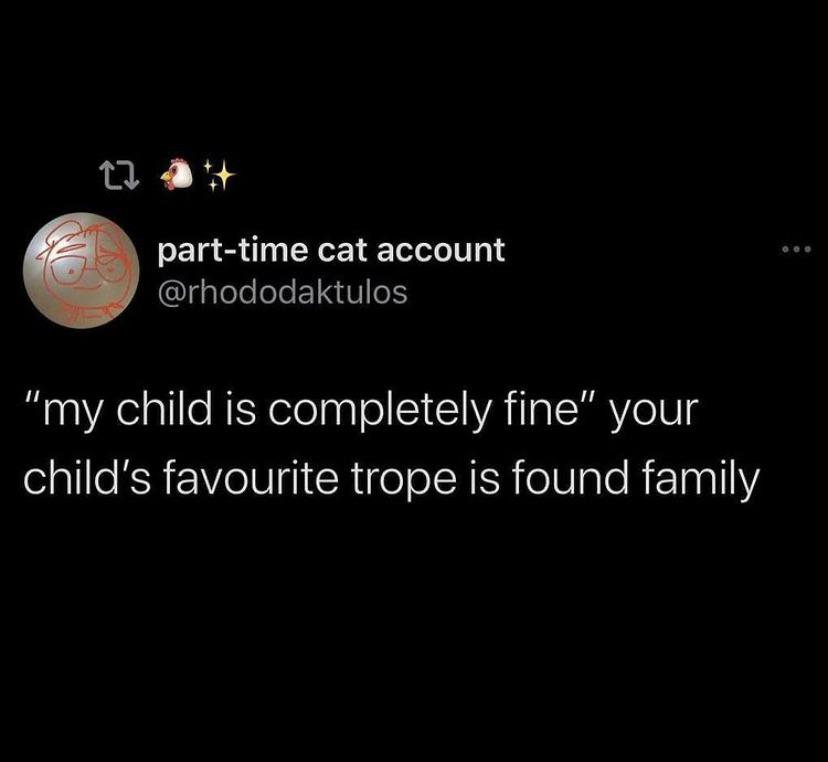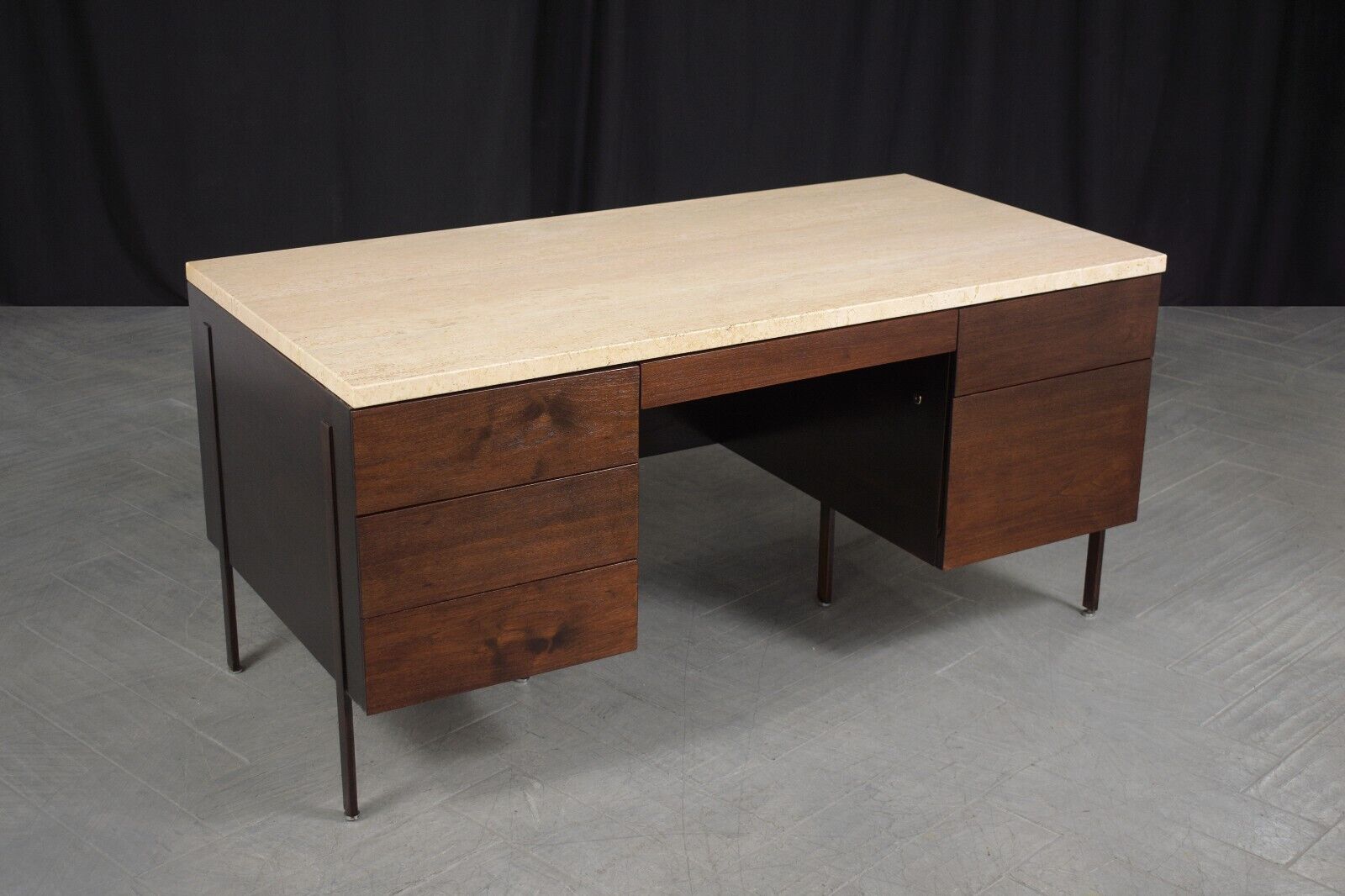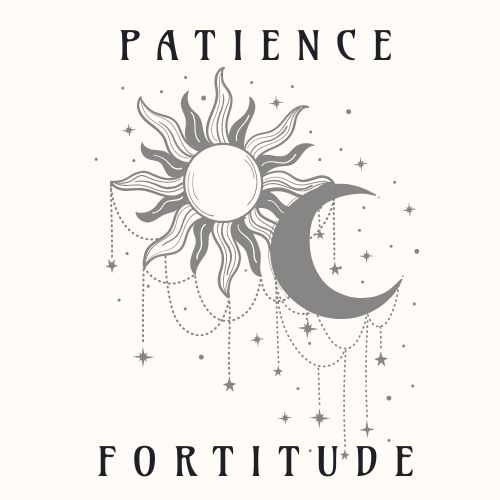I have snatches of memory, here and there: crawling under it; getting out from under it to feed the dogs and myself; deciding that taking a pillow under there with me was allowed (giving myself permission to have that little bit of comfort I did not feel I deserved).
But I don’t recollect the passage of time as a whole. I couldn’t tell you exactly how long I spent living under Poppa’s desk on a day-to-day basis, or how long it went on. I know it eventually came to an end, because I did not have the money to keep the house, and I was eventually forced to move out due to the bank foreclosing on it.
But in between his death and my departure, under that desk was a bubble of timelessness. There, I was exempted from the world outside. Everything went on without me.
I knew that.
But I wasn’t interested, and I didn’t care.
For a long time I was ashamed of the emotional fragility that led me to hide in the space under my father’s desk, but by the time I was recovering from the Breakdown of 2008, I realized that it was an understandable reaction. An expected one, even.
(I eventually wrote about that in chapter “Aftermath: Furniture and Defiance” in Grieving Futures.)
As more time has passed, though, I’ve realized that the great tragedy of that situation was not me hiding under the desk in grief-ridden shock and trauma, but that there was nobody to pull me out from under the desk and take care of me.
To help free me from my self-imposed chains of grief.
I wasn’t entirely abandoned, because I had some friends who still called and checked on me. But it was back when land lines were a thing, so sometimes getting out from under the desk to answer the phone was too much effort. Too much risk.
Of family, it was Aunt Sheila who made an effort to check on me regularly. She sent letters and hand-made cards (and continues to do so, lo’ these many years gone by!). But realistically, who could have come to help me? They all had lives of their own very far away from where I lived in back-water country, Florida. The majority of them were friends of mine from my lackluster college years. They were in their mid-20s and starting their own lives filled with marriages and children and careers.
Anyway, I wouldn’t have allowed them to drop everything and come take care of me for months on end, even if they thought to do so. I can’t fault them for not even considering it. That is supposed to be the job of “family” after all. But Aunt Sheila, the one who might have if she could have, worked for the National Park Service—and a government job is the absolutely last kind of job you can just skip out of on a whim. She already took several weeks off the year before just to come be with her sister (my mother) during her last month alive.
In the end, I was alone.
At the time, that felt very normal, almost comforting. My parents’ isolationist tendencies meant that being alone was my natural habitat. After all, I grew up in a homeschool house with a mentally ill mother who dealt with her anger and shame by being a recluse. My father was an alcoholic who worked all day, then came home to drink and watch television until he passed out.
Mother suffered from chronic health illnesses in conjunction with bipolar disorder, so was usually either cocooned in her bed for extended stretches of time counted in weeks and months, or in the middle of a manic-driven hyper focus episode that I could not do anything about. My best bet when she was in a manic phase was to stay out of the way, which I did by holing up in my room with books. It wasn’t like I had anywhere else to go.
I am in the realm of being an elder now, not quite at the stage of crone, but post-menopausal. Definitely not a maiden! With so many years under my metaphorical belt, I look back on the maiden I was, then, with an elder’s pity for having to do all of that alone.
Grief is intrinsically lonely, but, on the other hand, we are tribal creatures who evolved living in close-knit, small groups that support each other. This can look very different from community to community, culture to culture, society to society. Yet it is what we all long for: family, by blood or circumstance.
In modern American society, that’s been subverted by the “nuclear family” ideal: the father (who has “a job”), the mother (who is “a homemaker”), and the 2.5 kids (who are both incredibly normal and incredibly exceptional). It is supposed to be a sealed unit, with occasional openings for grandparents and visits with aunts and uncles and cousins.

In a way, you could say that my family was the epitome of that ideal, despite all of our problems. Those problems were mostly secrets from the outside world, anyway.
But my family revealed the major structural weakness with that ideal, too.
When I lost the anchors, the two parents at the center of that family construct, I lost everything…including myself.
I was not in any state to pull myself out from under The Desk, and there was nobody there to do it for me. I had no sense of self, outside of my grief and trauma.
The more I read and explore other people’s journeys through grief, the more I see how important it is to have those people in your life. Back then, I did not even know that was something I was missing, something I should have at least asked for, if not outright demanded. I’ve had to learn that in retrospect.
I can’t help it wonder what would have changed in my life if only one small thing had been different. It’s an amusing pastime we all engage in at one point or another, and usually I take that thought exercise much further into my youth: What if my mother had died in 1977 from her first severe asthma attack? What if my parents divorced in 1979 before they decided to move out of Albuquerque? What if they had left Albuquerque, but in turn had never moved out of Maine to Florida? What if in 1988 I had gone to Yale instead of New College?
But every once in a while, I think about 1996.
What would have happened if I had a brother or sister? Or lived closer to aunts and uncles so they were able to see my destruction? And maybe, just maybe, help pull me out?
It’s not a happy thought exercise, because I was truly a “tragic child” cliché in those years. I pity that young woman, and I think I earned that pity. Of course it’s possible that I was so hell-bent on self-destruction that nobody could have made a difference, anyway.
These days, I hope that I’m one of the few who had to deal with that alone. I hope that other people suffering from grief have a support network to help them crawl out from under The Desk. I know I am very grateful for the family I have in my life now.
The Desk
I looked for hours online trying to find the exact model. My parents had a matching set of Harvey Probber Executive desks just like this, only theirs were topped with black travertine instead of ivory. I am not sure why they called them “the IBM desks,” and I have no idea where they got them, but they were fixtures throughout my entire life with them. They were also ghastly heavy, so even if I had wanted to keep one (and I did) there was no way I could have moved it by myself. I had to leave them behind when I walked out of our house for the last time, and I do not know what happened to them. This one is only $4,856.00 at Castle Antiques.

